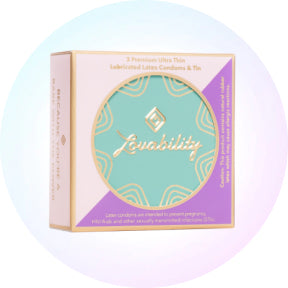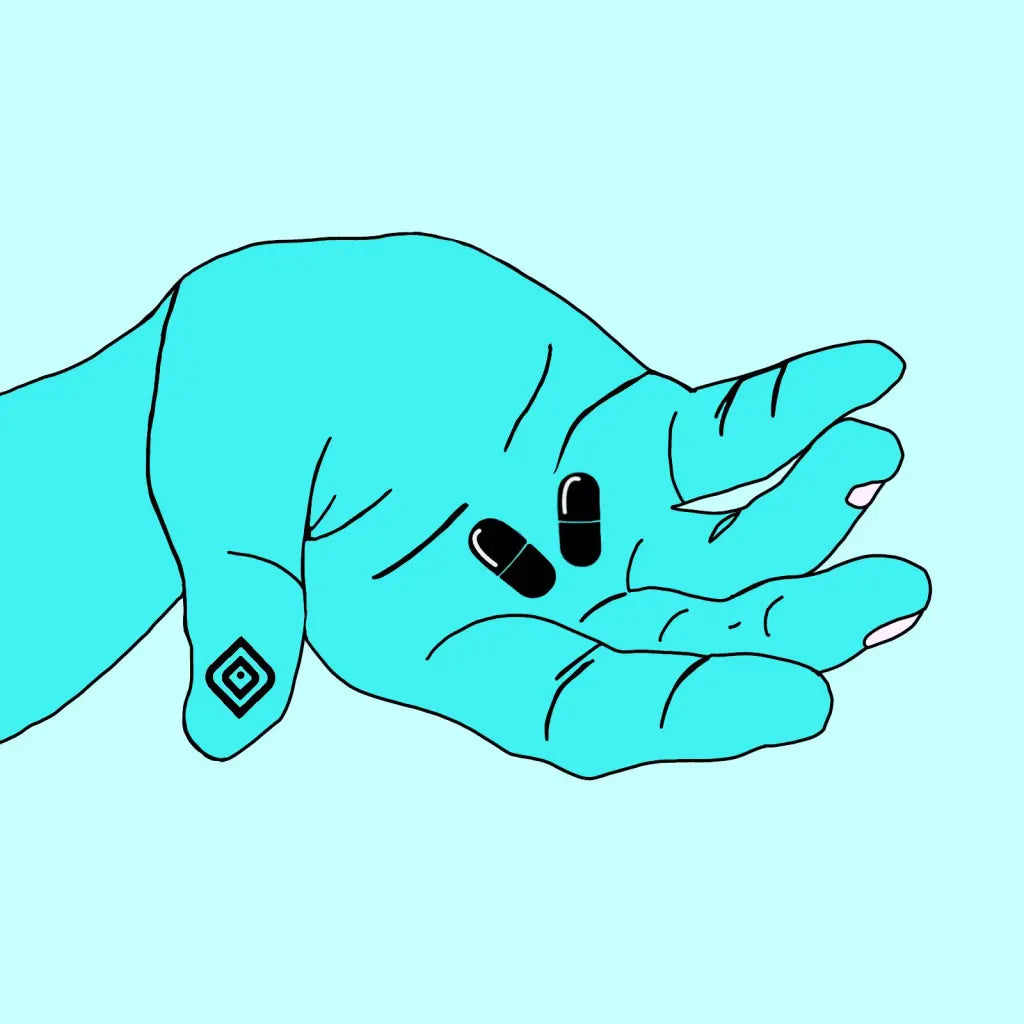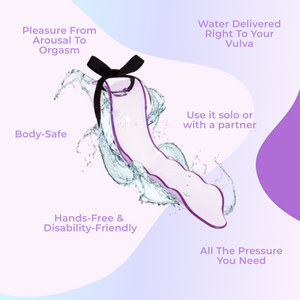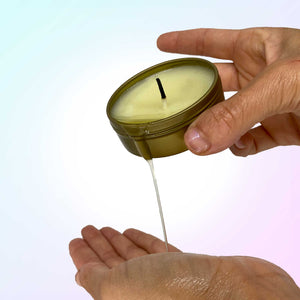Our mental health continues to take a beating these days, and it has made us think about how drugs that help us with mental health may adversely affect bedroom performance.
I (Maud) caught up recently with one of my good guy friends. He spoke about his ongoing struggle to cum with his girlfriend because of his antidepressants.
“It’s like i’m edging…all the time. You know when you have a really disappointing orgasm? Well it’s like that but you don’t even get the satisfaction of the orgasm. The only upside: I can last forever.”
This is not an uncommon reality for men who take SSRIs (selective serotonin reuptake inhibitors), commonly known as antidepressants.
Do Antidepressants Impact The Sex Drive Of Women?
It got me thinking; if men struggle with cumming while on antidepressants, what impact do antidepressants have on sex for women – especially since women are 2.5 x times more likely to be taking antidepressants than men (talk about a gender gap!).
I turned to my fellow writer Liza who is my go-to when it comes to these things. Here’s what I learned…
MAUD: Liza, what’s your personal experience with taking antidepressants? Has it changed any since the pandemic?
LIZA: I was diagnosed with Generalized Anxiety Disorder (GAD) and mild Obsessive Compulsive Disorder (OCD) when I was in my sophomore year of high school. Anxiety somewhat runs in my family, and I was lucky enough to be surrounded by people who could at least somewhat understand what I was going through. Since my diagnosis (at 15), I‘ve been taking a common SSRI known as Lexapro, which I use in tandem with talk therapy to manage my anxiety. Unlike so many others who suffer from anxiety and/or depression and are prescribed a lot of different medications for their illnesses, I was fortunate enough to find success with the first medication I tried. Throughout the years, and especially in the last few months, my dosage has increased. This is partially because of my body’s growing tolerance to the medication, but also in large part due to the increasing level of anxiety I‘ve been experiencing over the pandemic — during which my dosage has gone up twice.
MAUD: Has Lexapro affected your sexual libido or experiences? If so, how so?
LIZA: During the first two years of high school, prior to and in the short period after my diagnosis, I experienced intense anxiety revolving around sex and my sexuality. I was afraid to let my partner touch me anywhere below the belt due to the anxious thoughts swirling around in my head. As a result, the early years of my “sex” life were spent focusing on pleasing my partner rather than concentrating on or even allowing for my own pleasure. As I began to adjust to my new prescription, I noticed that I also started to become more confident and free with my sexuality. As a result, I began to sexplore. Though I was lucky in the sense that my SSRI didn’t inhibit my libido, it did however impact my ability to orgasm with a partner. Due to what I think is a combination of my medication and the anxious thoughts that continue to plague my mind during sex, I have always experienced difficulties with reaching climax during partnered sexual activities. It’s something that I‘ve only really over-cum (lol) after settling down with a partner I completely trust. Being with him has quelled a lot of my sex anxiety and allowed me to more fully immerse myself into the experience of pleasure.
MAUD: Sexual anxiety in my opinion is not talked about enough so it’s really refreshing to hear you share your personal experiences. As you’ve mentioned, being able to feel comfortable in your own skin with your partner is such a large part in pleasurable sex. So let’s talk a bit more about how Covid has affected your mental health. Do you think you had to relearn how to be sexually comfortable?
LIZA: Yes, I the pandemic really sent me back to square one for awhile in terms of the progress I made with my sex anxieties. Being in lockdown, not to mention months of hardcore stress-eating, really messed with my mental health and body image. For months I found it even more difficult to orgasm with my partner despite the comfort and trust I had built with him over the years. Things have gotten better now that I’ve become more accustomed to our pandemic reality, and I’ve stopped eating my feelings, but sh*t was rough (and not the kind of rough I like) in the orgasm department for a while there.
MAUD: I think we can all find relatability with you Liza. Although I personally do not take any SSRIs, I was thinking a lot about mental health in the bedroom for myself. This year I felt my confidence weaken and in accordance, my sex drive. I really beat myself up for not feeling always in the mood like my usual self. I think more people should be talking about how mental health and sexual confidence overlap.
LIZA: I feel grateful that my SSRI medication has had less of an impact on my sex life than it has on many others taking similar medications. The intersections between mental health and sexual health have long been something I am passionate about. There are so many people out there taking antidepressants, and with so many potential side effects there’s never ending possibilities and impacts on ones libido, which is why I jumped at the chance to help you (Maud) with this article by sharing my personal experiences.
Side Effects Of Antidepressants On Sex
So, if you are taking antidepressants that are supposed to make you less stressed, not anxious and less worried, why is it harder to cum?
The irony is that sex and orgasms for females is mental state-oriented, yet the very calm and stability brought on by antidepressants – now taken by 23% of women in their 40s and 50s! – may lower our libido.
- Taking any sort of antidepressants should never be stigmatized, and neither should the side effects. Dysfunctional sexual performance affecting 73% is a number more people should be talking about.
We Need To Pay More Attention To Women's Sexual Health
There are more than a couple factors at play here; it becomes an issue of gender inequality and the medical institution not taking women’s sexual health as seriously as men’s, as the next statistic shows.
- Now this is a serious issue. First, women are not getting as much information as men are for the side effects of their pills. Secondly, since most women were not initially told about potentially damaging sexual side effects, they are less likely to bring up the concerns to their doctors after facing them. Third, and worst of all, even when women did bring up concerns to their doctors, only 63% of doctors took them seriously. What the f*ck?!
This becomes an issue on how not only society but medical institutions unequally treat women’s sex drive compared to men’s. It doesn’t stop here. Look at medications on the market today that cater to men’s sexual drive and compare them to that of medication for women (not to mention the right to market those medications).
There’s no shortage of research to be done in this area, including investigating the gender inequalities in the medical field. For now, the key takeaway is that that no one feels 100% all the time and there’s no shame in seeking out help to improve your mental health. We need to be talking about it more and work together to break down the stigmas of mental health, including what happens in the bedroom, as we continue to get comfortable with (and take pride in) ourselves and our bodies.
About The Authors
A senior in William & Mary and St Andrews’ joint degree program for English has always been passionate about initiating conversations around sexual destigmatization and female sex-positivity. Maud Purinton (@maudpurinton on Instagram) is an avid skier and mixed media artist and looks forward to pursuing a career in fashion and beauty PR after she graduates.
A senior double Anthropology and Women’s & Gender Studies Major at Kenyon College in Ohio, Liza Brilliant (@brill.ant on Insta) is devoted to destigmatizing conversations around sexuality and promoting healthy, sex-positive femininity. Liza hopes to one day work in law and public policy, specifically around destigmatizing and decriminalizing sex work. She firmly believes that sex-positivity has the power to influence broader political and social norms, changing the world one orgasm at a time.
More Articles You Might Love

Get To Know Your Vulva





















